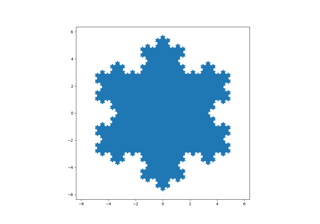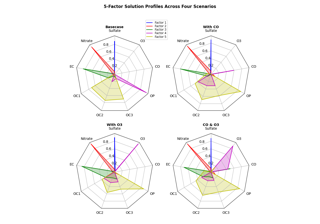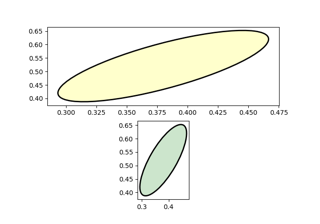matplotlib.axes.Axes.fill#
- Axes.fill(*args, data=None, **kwargs)[source]#
Plot filled polygons.
- Parameters:
- *argssequence of x, y, [color]
Each polygon is defined by the lists of x and y positions of its nodes, optionally followed by a color specifier. See
matplotlib.colorsfor supported color specifiers. The standard color cycle is used for polygons without a color specifier.You can plot multiple polygons by providing multiple x, y, [color] groups.
For example, each of the following is legal:
ax.fill(x, y) # a polygon with default color ax.fill(x, y, "b") # a blue polygon ax.fill(x, y, x2, y2) # two polygons ax.fill(x, y, "b", x2, y2, "r") # a blue and a red polygon
- dataindexable object, optional
An object with labelled data. If given, provide the label names to plot in x and y, e.g.:
ax.fill("time", "signal", data={"time": [0, 1, 2], "signal": [0, 1, 0]})
- Returns:
- list of
Polygon
- list of
- Other Parameters:
- **kwargs
Polygonproperties
- **kwargs
Notes
Use
fill_between()if you would like to fill the region between two curves.
Examples using matplotlib.axes.Axes.fill#
Filled polygon
Radar chart (aka spider or star chart)
Radar chart (aka spider or star chart)
Ellipse with units


